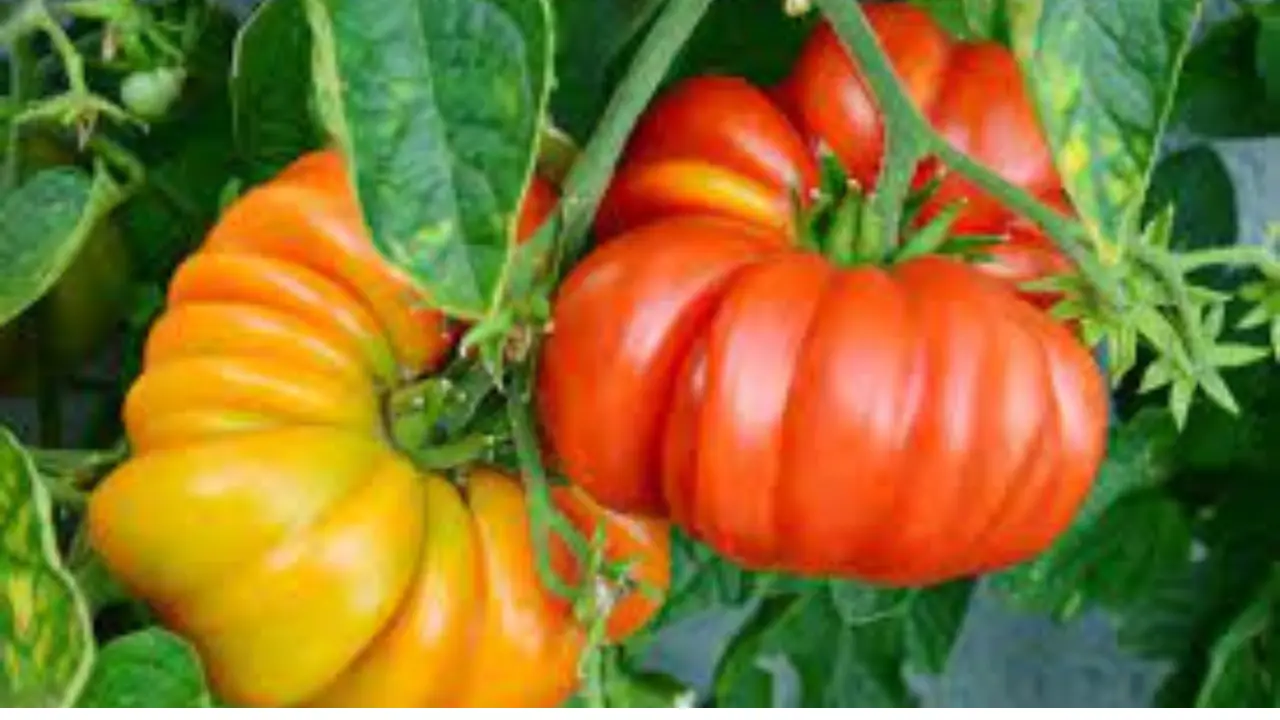
DFAGIE Fly Trap Indoor(1 Device + 5 Glue Cards), Plug-in Flying Insect Trap for Mosquito, Flies, Fruit Flies, Moths, Gnats, Gnat Trap for House Indoor, White
58% OffHeirloom Plants and Ethical Eating
In a world driven by convenience and mass production, there’s a growing movement that’s as much about the past as it is about the future. Heirloom plants have been quietly making a comeback in our gardens and on our plates. But what exactly are heirloom plants, and why should we pay attention to them in the context of ethical eating? Join us on a journey through time and flavor as we explore the world of heirloom plants and their role in conscientious consumption.
What Are Heirloom Plants?
Heirloom plants, often referred to as heritage plants, are cultivated varieties of plants that have been passed down through generations. These plants are treasured for their genetic diversity and are open-pollinated, which means they are pollinated by natural mechanisms such as wind, insects, or birds, rather than through human intervention. Unlike modern hybrid plants, heirlooms maintain their unique traits from one generation to the next.
The History of Heirloom Plants
To truly appreciate heirloom plants, it’s essential to delve into their rich history. These plants have deep roots, with some varieties dating back centuries. They were cultivated by our ancestors, who carefully selected and saved seeds from the best-performing plants year after year. This practice created plant varieties uniquely adapted to local conditions and tastes.
Why Are Heirloom Plants Important?
Biodiversity Preservation
One of the key reasons heirloom plants deserve a place on our plates is biodiversity preservation. In today’s industrial agriculture landscape, a limited number of crop varieties dominate the market. This monoculture approach puts our food system at risk, as it makes crops vulnerable to diseases and pests. Heirloom plants, with their diverse genetics, help safeguard against such threats.
Superior Taste and Nutrition
Heirloom plants are not just about tradition; they also offer a culinary experience like no other. The flavors of heirloom vegetables and fruits are often described as more intense and complex than their hybrid counterparts. Additionally, studies suggest that heirlooms may contain higher levels of essential nutrients, making them a healthier choice.
Supporting Local Agriculture
By growing and consuming heirloom plants, you are also supporting local agriculture. Many small-scale farmers and backyard gardeners are passionate about preserving these varieties. Buying heirloom produce at local markets helps sustain these efforts and promotes food sovereignty in your community.
How to Incorporate Heirloom Plants into Your Diet
Cooking with Heirloom Vegetables
The first step in embracing heirloom plants is to incorporate them into your diet. Heirloom vegetables, such as Cherokee Purple tomatoes or Glass Gem corn, can elevate your culinary creations. Their unique flavors and vibrant colors can turn an ordinary meal into a gourmet experience.
Heirloom Herbs and Spices
Don’t forget about heirloom herbs and spices. Varieties like Genovese basil or cinnamon basil can add a burst of flavor to your dishes. Growing these herbs in your garden or sourcing them locally enhances the ethical aspect of your cooking.
The Joy of Growing Your Own
If you’re feeling adventurous, consider growing heirloom plants in your own garden. The act of nurturing these ancient varieties can be incredibly satisfying. Plus, you’ll have the freshest produce at your fingertips.
Ethical Considerations in Eating
As we indulge in the delicious world of heirloom plants, it’s important to recognize the ethical dimension of our food choices.
Reducing Environmental Impact
Choosing heirloom plants can reduce your environmental footprint. These plants often require fewer synthetic inputs, such as pesticides and fertilizers, which can harm the environment. By opting for heirlooms, you’re contributing to a more sustainable food system.
Supporting Sustainable Farming Practices
Many heirloom growers follow sustainable and regenerative farming practices. By supporting them, you’re endorsing agricultural methods that prioritize soil health, biodiversity, and long-term sustainability.
Conclusion
In a time when the global food industry is dominated by uniformity and convenience, heirloom plants offer a glimpse into a more diverse, flavorful, and ethical future. By embracing these treasures from the past, we not only tantalize our taste buds but also contribute to biodiversity conservation, support local agriculture, and make conscientious choices for the planet.
FAQs
1. Are heirloom plants the same as organic plants?
No, heirloom plants refer to the genetic heritage of a plant variety, while organic certification pertains to the cultivation methods used, such as avoiding synthetic chemicals.
2. Can I find heirloom plants at my local grocery store?
While some specialty stores may carry heirloom produce, your best bet is to check local farmers’ markets or consider growing them in your garden.
3. Are heirloom plants more challenging to grow than modern hybrids?
Not necessarily. While some heirloom varieties may require specific conditions, many are well-suited to home gardens and can thrive with proper care.
4. Do heirloom plants have a longer shelf life than modern varieties?
Shelf life can vary among heirlooms, but some are renowned for their longevity when properly stored.
5. How can I find heirloom seeds to start my garden?
You can find heirloom seeds from specialty seed companies, online retailers, or even by networking with local gardeners who may be willing to share or trade seeds.











